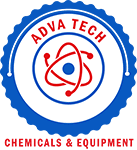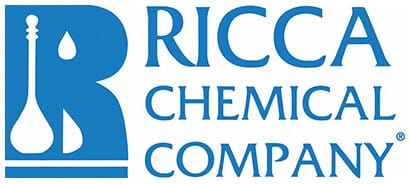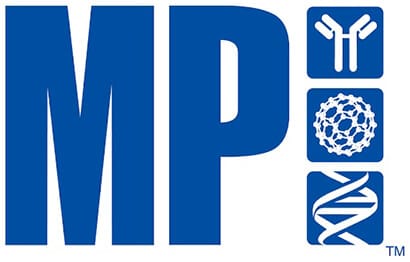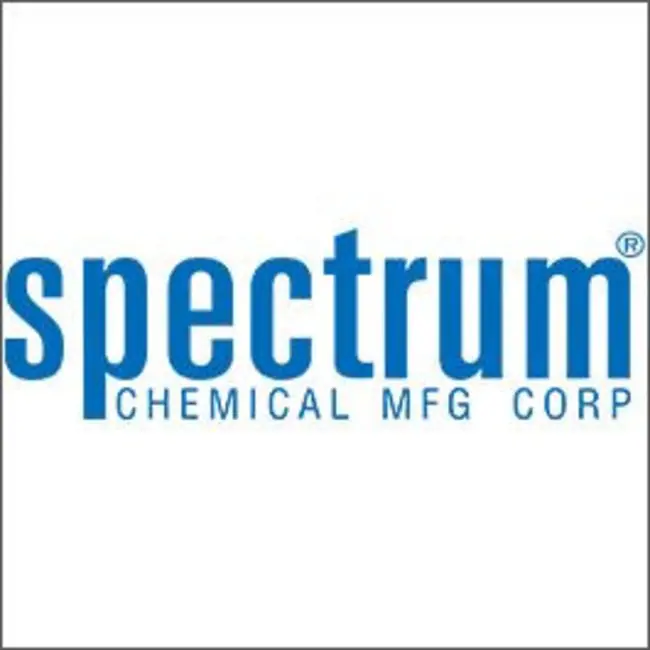1mg
Showing 3151–3200 of 7910 results
-

Butamirate-d5 Citrate
$165.60 Add to cart View Product DetailsMolecular Formula : C24H32D5NO10
-
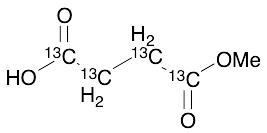
Butanedioic-13C4 Acid 1-Methyl Ester
$292.39 Add to cart View Product DetailsMolecular Formula : C13C4H8O4
-
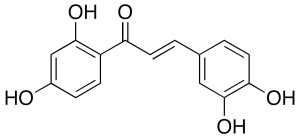
Butein
$51.75 Add to cart View Product DetailsMolecular Formula : C15 H12 O5
-
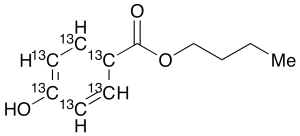
Butyl Paraben-13C6
$363.11 Add to cart View Product DetailsMolecular Formula : 13C6 C5 H14 O3
-
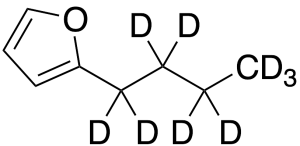
Butylfuran-d9
$160.43 Add to cart View Product DetailsMolecular Formula : C8H3D9O
-
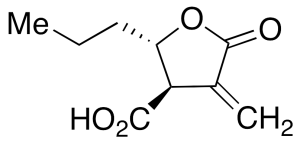
Butyrolactone 3
$62.10 Add to cart View Product DetailsMolecular Formula : C9 H12 O4
-

BzATP Ammonium Salt (Mixture of 2′-3′ isomers)
$171.64 Add to cart View Product DetailsMolecular Formula : C24H24N5O15P3 xNH3
-

C-Peptide-d3 (Proinsulin) TFA Salt
$181.99 Add to cart View Product DetailsMolecular Formula : C112H176D3N35O46 • x(C2HF3O2)
-

C12 Ceramide
$70.73 Add to cart View Product DetailsMolecular Formula : C30 H59 N O3
-

C18 Ceramide-13C2,D2
$566.66 Add to cart View Product DetailsMolecular Formula : C3413C2H69D2NO3
-

C2 Ceramide-1-phosphate
$160.43 Add to cart View Product DetailsMolecular Formula : C20 H40 N O6 P
-

C8 Ceramide-1-phosphate
$154.39 Add to cart View Product DetailsMolecular Formula : C16 H32 N O6 P
-
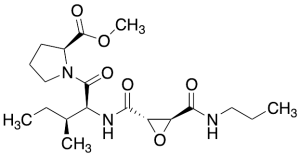
CA-074 Methyl Ester
$86.25 Add to cart View Product DetailsMolecular Formula : C19H31N3O6
-
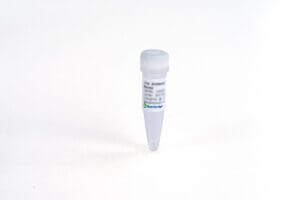
CA125 (C33), mAb, Mouse
$101.78 Add to cart View Product DetailsCA125, known as cancer antigen 125, carcinoma antigen 125, and carbohydrate antigen 125, is a member of the mucin family glycoproteins. It is involved in boosting tumorigenesis and tumor proliferation and is considered as a useful biomarker for the diagnosis of ovarian cancer.
-

CA125 (D34), mAb, Mouse
$101.78 Add to cart View Product DetailsCA125, known as cancer antigen 125, carcinoma antigen 125, and carbohydrate antigen 125, is a member of the mucin family glycoproteins. It is involved in boosting tumorigenesis and tumor proliferation and is considered as a useful biomarker for the diagnosis of ovarian cancer.
-

CA15-3 (15D3HC)
$319.13 Add to cart View Product DetailsCA15-3
(Carcinoma antigen 15-3) is also known as MUC 1 antigen. It is a
membrane-anchored, mucin-type glycoprotein present in malignant cells. It is
used as tumor marker to monitor breast cancer treatment and disease recurrence. -

CA15-3 (25E3), mAb, Mouse
$319.13 Add to cart View Product DetailsCA15-3
(Carcinoma antigen 15-3) is also known as MUC 1 antigen. It is a
membrane-anchored, mucin-type glycoprotein present in malignant cells. It is
used as tumor marker to monitor breast cancer treatment and disease recurrence. -

CA15-3 Antibody(A5D8), mAb, Mouse
$319.13 Add to cart View Product DetailsCA15-3 (Carcinoma antigen 15-3) is also known as MUC 1 antigen. It is a membrane-anchored, mucin-type glycoprotein present in malignant cells. It is used as tumor marker to monitor breast cancer treatment and disease recurrence.
-

CA19-9 (19C7HC)
$281.18 Add to cart View Product DetailsCarbohydrate
antigen 19-9 (CA19-9) is the sialylated form of Lewis Antigen. It may be
elevated in many types of gastrointestinal cancer, such as colorectal cancer,
esophageal cancer and hepatocellular carcinoma. It is useful for diagnosis and monitoring of
pancreatic cancer -

CA19-9 Antibody (9H9), mAb, Mouse
$291.53 Add to cart View Product DetailsCarbohydrate
antigen 19-9 (CA19-9) is the sialylated form of Lewis Antigen. It may be
elevated in many types of gastrointestinal cancer, such as colorectal cancer,
esophageal cancer and hepatocellular carcinoma. It is useful for diagnosis and monitoring of pancreatic cancer -

CA242 (1A6), mAb, Mouse
$287.21 Add to cart View Product DetailsCA242, known as carbohydrate antigen 242, is a sialyated carbohydrate antigen. It is a cancer-associated glycoprotein expressed in the sera of pancreatic cancer patients. CA242 is a useful biomarker for the diagnosis, prognosis, and surveillance of gastrointestinal malignancies.
-

CA242 (1E1HC)
$287.21 Add to cart View Product DetailsCA242, known as carbohydrate antigen 242, is a sialyated carbohydrate antigen. It is a cancer-associated glycoprotein expressed in the sera of pancreatic cancer patients. CA242 is a useful biomarker for the diagnosis, prognosis, and surveillance of gastrointestinal malignancies.
-

CA72-4 Antibody (44E45), mAb, Mouse
$292.39 Add to cart View Product DetailsCA72-4 (Cancer antigen 72-4), also known as Tumor associated glycoprotein (TAG) 72, is a mucin-like protein of high molecular weight (200- 400 kD). CA 72-4 has high specificity for diagnosis of benign diseases. It is also a helpful marker in the diagnosis of gastric cancer, ovarian carcinoma and colorectal carcinoma.
-

CA72-4 Antibody (44E48), mAb, Mouse
$287.21 Add to cart View Product DetailsCA72-4 (Cancer antigen 72-4), also known as Tumor associated glycoprotein (TAG) 72, is a mucin-like protein of high molecular weight (200- 400 kD). CA 72-4 has high specificity for diagnosis of benign diseases. It is also a helpful marker in the diagnosis of gastric cancer, ovarian carcinoma and colorectal carcinoma.
-

CA72-4 Antibody (D31), mAb, Mouse
$287.21 Add to cart View Product DetailsCA72-4 (Cancer antigen 72-4), also known as Tumor associated glycoprotein (TAG) 72, is a mucin-like protein of high molecular weight (200- 400 kD). CA 72-4 has high specificity for diagnosis of benign diseases. It is also a helpful marker in the diagnosis of gastric cancer, ovarian carcinoma and colorectal carcinoma.
-

Cabazitaxel-d6
$296.70 Add to cart View Product DetailsMolecular Formula : C45H51D6NO14
-
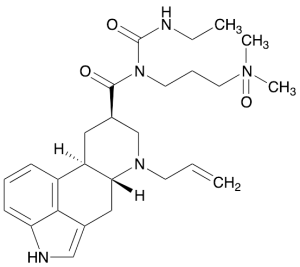
Cabergoline N-Oxide
$471.79 Add to cart View Product DetailsMolecular Formula : C26H37N5O3
-
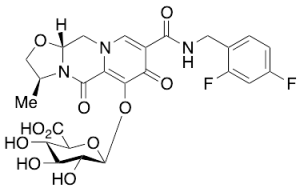
Cabotegravir O-Beta-D-Glucuronide
$298.43 Add to cart View Product DetailsMolecular Formula : C25H25F2N3O11
-
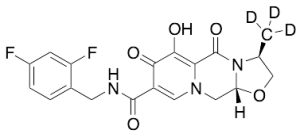
Cabotegravir-d3
$293.25 Add to cart View Product DetailsMolecular Formula : C19H14D3F2N3O5
-

Cabozantinib (Phenylene-d4) L-Malate Salt
$198.38 Add to cart View Product DetailsMolecular Formula : C28 D4 H20 F N3 O5 . C4 H6 O5
-
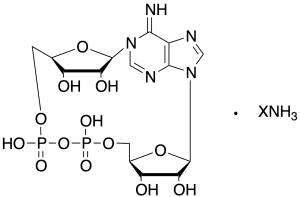
cADP-Ribose (cADPR) Ammonium Salt (~90%)
$281.18 Add to cart View Product DetailsMolecular Formula : C15H21N5O13P2 • x(NH3)
-
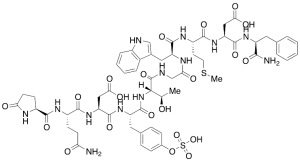
Caerulein (~90%)
$106.09 Add to cart View Product DetailsMolecular Formula : C58 H73 N13 O21 S2
-

Caffeic Acid 3-beta-D-Glucuronide
$148.35 Add to cart View Product DetailsMolecular Formula : C15H16O10
-
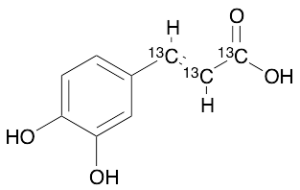
Caffeic Acid-13C3
$258.75 Add to cart View Product DetailsMolecular Formula : C613C3H8O4
-
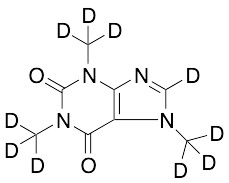
Caffeine-D10
$163.01 Add to cart View Product DetailsMolecular Formula : C8D10N4O2
-

Calcifediol
$51.75 Add to cart View Product DetailsMolecular Formula : C27 H44 O2
-
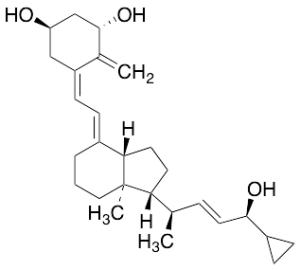
Calcipotriene
$61.24 Add to cart View Product DetailsMolecular Formula : C27 H40 O3
-

Calcitonin (12C5), mAb, Mouse
$131.10 Add to cart View Product DetailsPCT, a 116 amino acid (aa) protein, is comprised of three sections including a 57 aa N-terminal PCT, a 32 aa calcitonin and a 21 aa katacalcin. Calcitonin is a hormone, derived from PCT cleavage. PCT is a good diagnosis marker for bacterial infection. Other diseases such as sepsis, inflammation, surgery, heat shock, burn injuries and cardiogenic shock can also cause an increase of PCT level in blood.
-

Calcitonin (E72), mAb, Mouse
$131.10 Add to cart View Product DetailsPCT is a 116 amino acid (aa) protein. It is comprised of three sections of a 57 aa N-terminal PCT, a 32 aa calcitonin and a 21 aa katacalcin. Calcitonin is a hormone, derived from PCT cleavage. PCT is a good diagnosis marker for bacterial infection. Other diseases such as sepsis, inflammation, surgery, heat shock, burn injuries and cardiogenic shock can also cause an increase of PCT level in blood.
-

Calcitonin, Salmon
$121.61 Add to cart View Product DetailsMolecular Formula : C145 H240 N44 O48 S2
-

Calcitriol
$61.24 Add to cart View Product DetailsMolecular Formula : C27 H44 O3
-
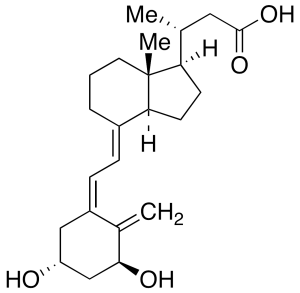
Calcitroic Acid
$342.41 Add to cart View Product DetailsMolecular Formula : C23 H34 O4
-

Calcium (-)-Hydroxycitrate
$106.95 Add to cart View Product DetailsMolecular Formula : 2 C6 H5 O8 . 3 Ca
-

Calindol-13C,d2 Hydrochloride
$166.46 Add to cart View Product DetailsMolecular Formula : C2013CH19D2ClN2
-
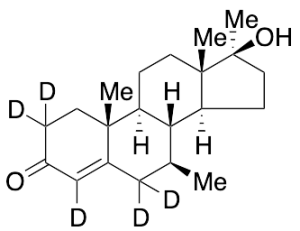
Calusterone-d5
$225.98 Add to cart View Product DetailsMolecular Formula : C21H27D5O2
-
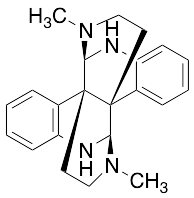
Calycanthine
$61.24 Add to cart View Product DetailsMolecular Formula : C22H26N4
-

Calycosin
$127.65 Add to cart View Product DetailsMolecular Formula : C16 H12 O5
-
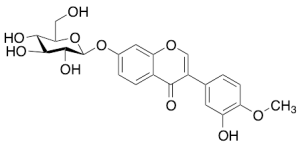
Calycosin 7-O-Beta-D-glucoside
$62.10 Add to cart View Product DetailsMolecular Formula : C22 H22 O10
-

Camfetamine Hydrochloride
$160.43 Add to cart View Product DetailsMolecular Formula : C14 H19 N . Cl H
-
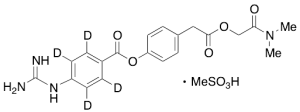
Camostat Mesylate-D4
$214.76 Add to cart View Product DetailsMolecular Formula : C20H18D4N4O5 • CH 4O3S
